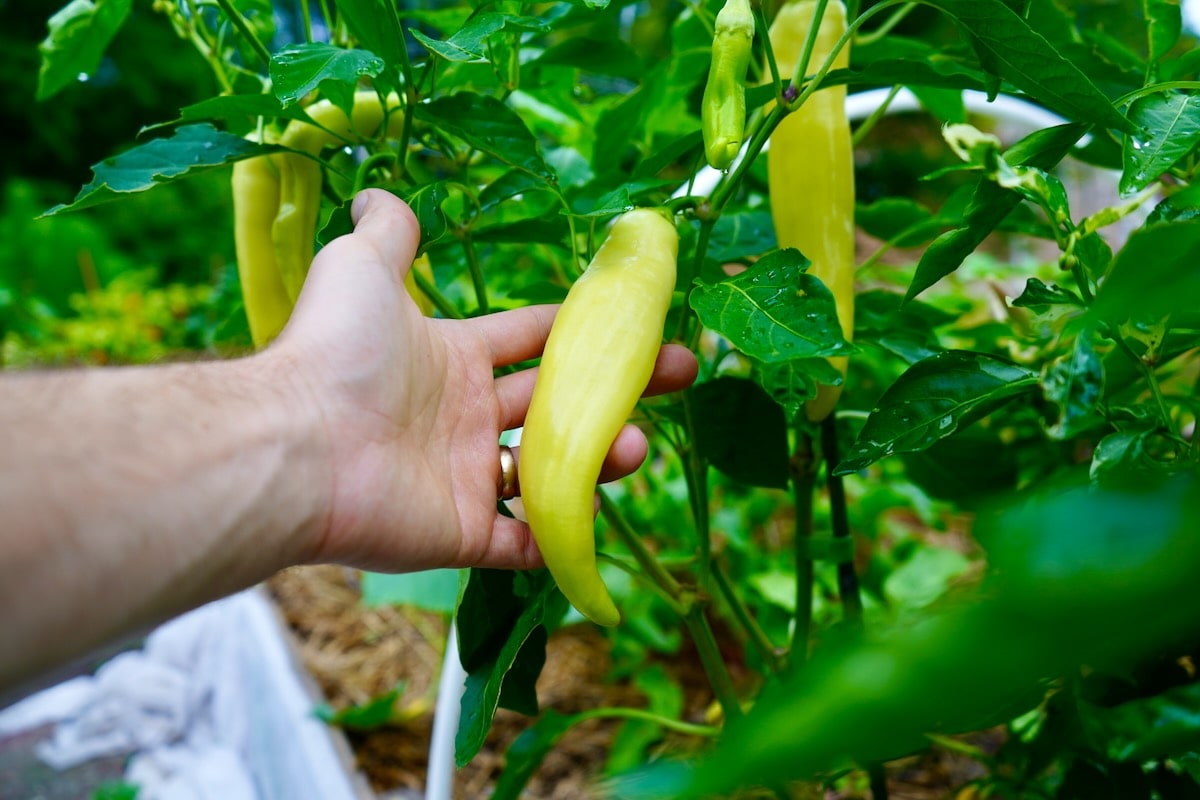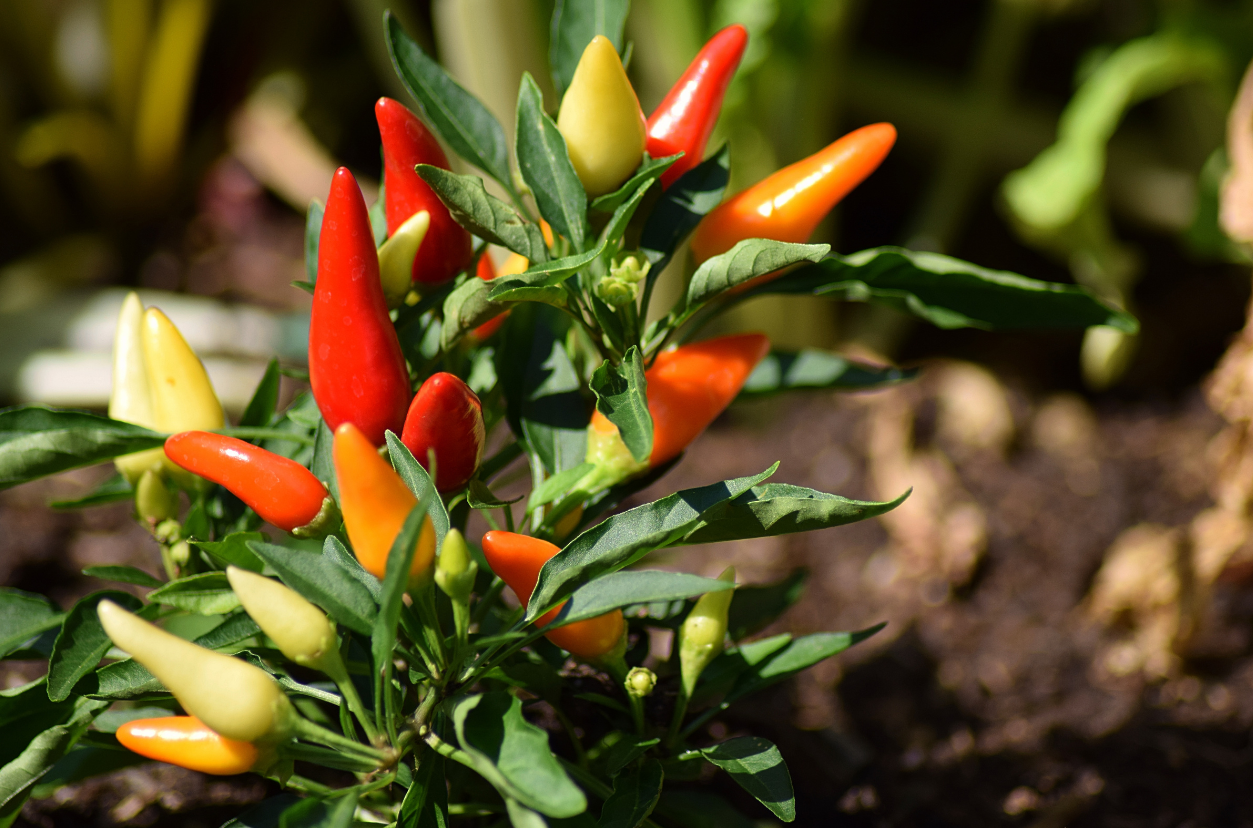Best Fertilizers for Peppers: Achieve Superior Results in Your Garden
Best Fertilizers for Peppers: Achieve Superior Results in Your Garden
Blog Article
Organic Vs. Synthetic Fertilizers: Which Is Best for Nurturing Healthy Pepper Plants?
In the realm of supporting healthy and balanced pepper plants, the selection between organic and synthetic plant foods stands as an essential decision with far-ranging effects. While both choices objective to offer important nutrients to sustain plant development, the nuances of their effect on the dirt, plant wellness, and the atmosphere spark a discussion that mirrors throughout the gardening community. Recognizing the unique advantages and possible risks of each fertilizer kind is vital for pepper growers seeking to enhance their returns while maintaining an eco-conscious and lasting method.
Advantages of Organic Plant Foods
Organic fertilizers use an environmentally-friendly and sustainable strategy to nourishing pepper plants, providing crucial nutrients without making use of artificial chemicals. These natural plant foods are stemmed from natural sources such as garden compost, manure, bone meal, and algae, promoting dirt health and wellness and biodiversity. Unlike synthetic fertilizers, natural options launch nutrients slowly, ensuring a well balanced and stable supply for pepper plants to thrive.
One considerable advantage of organic plant foods is their capability to enhance dirt framework and water retention. By enhancing dirt health, natural plant foods promote helpful microbial activity, which helps in nutrient uptake by pepper plants. In addition, organic plant foods reduce the threat of chemical run-off, protecting water sources from air pollution and securing the setting.
Furthermore, natural plant foods add to long-lasting soil fertility by advertising the development of useful dirt microorganisms. These microorganisms help break down raw material, releasing nutrients in a type that is easily available to pepper plants. best fertilizers for peppers. By cultivating a healthy and balanced soil community, organic plant foods sustain lasting pepper farming practices that benefit both plants and the atmosphere
Downsides of Artificial Fertilizers
Synthetic fertilizers, in contrast to their organic counterparts, position different downsides when made use of to nurture pepper plants, impacting both plant health and environmental sustainability. One major drawback of synthetic fertilizers is their tendency to leach nutrients from the dirt promptly. This quick leaching can bring about nutrient imbalances in the dirt, creating plants to endure from deficiencies or toxicities. In addition, artificial plant foods can damage beneficial dirt microorganisms, such as earthworms and helpful germs, interfering with the dirt ecological community's equilibrium.
Furthermore, the overuse of synthetic plant foods can add to water contamination. Excess plant foods not taken in by plants can get rid of right into water bodies, causing eutrophication, where algae blooms diminish oxygen levels in the water, damaging water life. Furthermore, synthetic plant foods are normally stemmed from non-renewable sources, such as nonrenewable fuel sources, contributing to carbon discharges and environmental deterioration during their production.
Nutrient Absorption Comparison
Efficient nutrient absorption plays a crucial function in the overall health and wellness and growth of pepper plants. When contrasting artificial and organic fertilizers in regards to nutrient absorption, organic plant foods have the advantage of giving a much more well balanced and slow-release resource of nutrients (best fertilizers for peppers). More Bonuses Organic fertilizers have a range of macro and micronutrients that are not just useful for the plants but likewise promote healthy and balanced dirt microbial activity, which assists in nutrient uptake. On the other hand, artificial fertilizers typically supply a fast launch of nutrients, which can result in seeping and overflow, resulting in reduced nutrient absorption prices by the plants.
In addition, organic plant foods improve soil structure and water retention ability, permitting pepper plants to access nutrients much more successfully. This enhanced soil high quality assists in root advancement, enabling better nutrient absorption. Synthetic plant foods, although initially increasing plant growth because of their high nutrient focus, might impede lasting nutrient absorption by degrading soil health and wellness over time.
Ecological Impact Factors To Consider

On the various other hand, synthetic fertilizers, although frequently more focused and promptly readily available to plants, can have destructive effects on the setting otherwise used appropriately (best fertilizers for peppers). Their manufacturing calls for high energy inputs, resulting in greenhouse gas emissions and adding to environment modification. The drainage of excess artificial plant foods can pollute water sources, leading to eutrophication and damaging aquatic environments.
Ideal Plant Food Practices for Peppers
To accomplish this, it is important to adhere to finest plant food methods customized to the particular needs of pepper plants. One vital practice is to execute a dirt examination before using any kind of fertilizers.
An additional vital practice is to fertilize pepper plants at the appropriate time. Typically, peppers take advantage of receiving plant food at planting and afterwards once more when they begin to flower. Over-fertilizing can result in nutrition imbalances and harm the plants, so it is essential to adhere to suggested application rates.
Additionally, selecting a balanced plant food with an NPK ratio that matches pepper plants' requirements is basic. Inevitably, integrating artificial and organic plant foods carefully can help support healthy pepper plants while lessening environmental impact.
Verdict

Organic plant foods use an environmentally-friendly and sustainable method to beneficial pepper plants, providing necessary nutrients without the use of synthetic chemicals. Unlike synthetic plant foods, natural options release nutrients gradually, guaranteeing a balanced and steady supply for pepper plants to flourish.
Artificial plant foods, in contrast to their organic equivalents, posture various drawbacks when utilized to nurture pepper plants, influencing both plant health and wellness and ecological sustainability. When contrasting organic and synthetic plant foods in terms of nutrient absorption, natural plant foods have the benefit of supplying an extra well balanced and slow-release resource of nutrients.Furthermore, organic fertilizers enhance dirt framework and water retention ability, allowing pepper plants to gain access to nutrients more efficiently.
Report this page